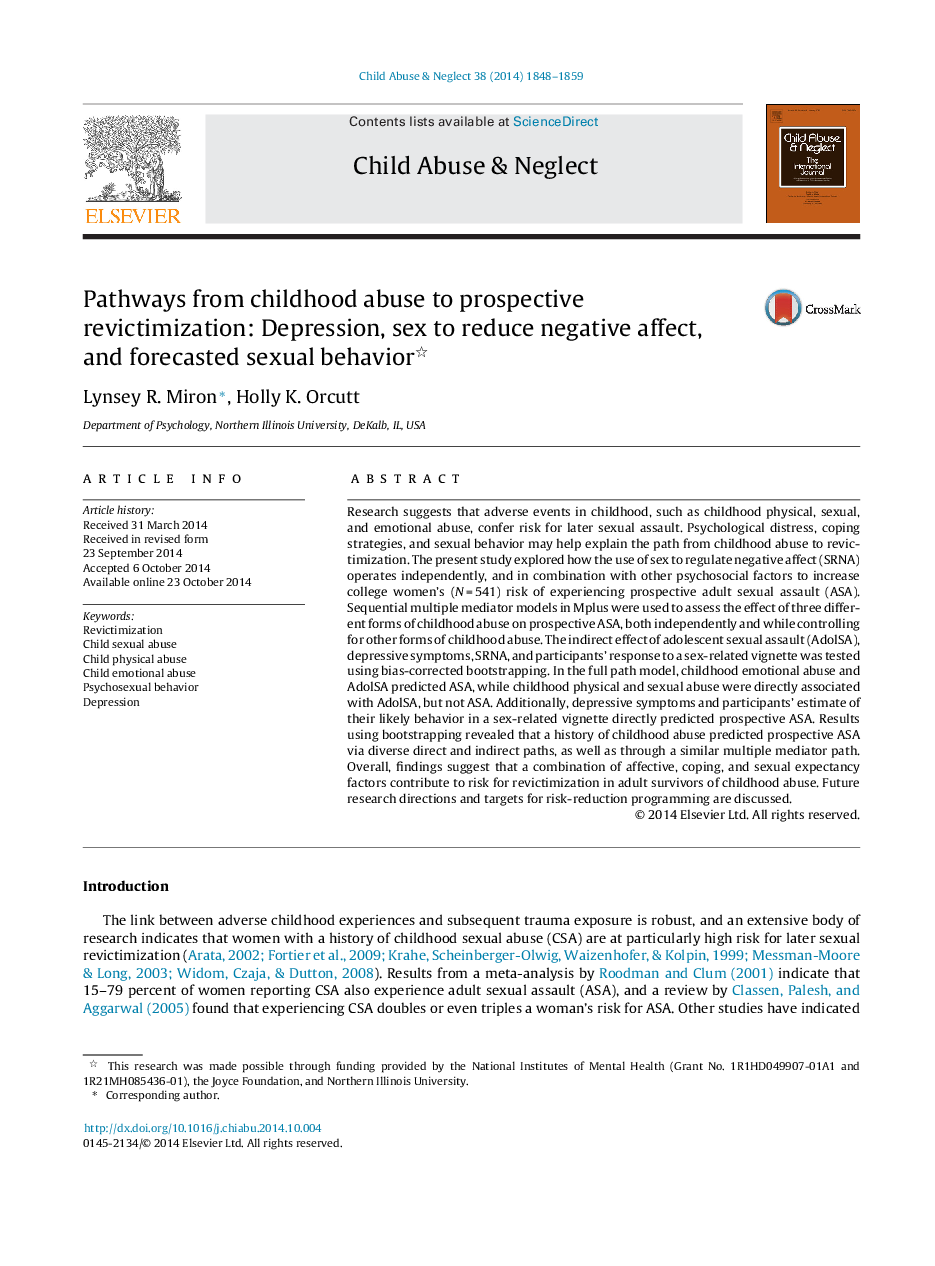| کد مقاله | کد نشریه | سال انتشار | مقاله انگلیسی | نسخه تمام متن |
|---|---|---|---|---|
| 344739 | 617447 | 2014 | 12 صفحه PDF | دانلود رایگان |
Research suggests that adverse events in childhood, such as childhood physical, sexual, and emotional abuse, confer risk for later sexual assault. Psychological distress, coping strategies, and sexual behavior may help explain the path from childhood abuse to revictimization. The present study explored how the use of sex to regulate negative affect (SRNA) operates independently, and in combination with other psychosocial factors to increase college women's (N = 541) risk of experiencing prospective adult sexual assault (ASA). Sequential multiple mediator models in Mplus were used to assess the effect of three different forms of childhood abuse on prospective ASA, both independently and while controlling for other forms of childhood abuse. The indirect effect of adolescent sexual assault (AdolSA), depressive symptoms, SRNA, and participants’ response to a sex-related vignette was tested using bias-corrected bootstrapping. In the full path model, childhood emotional abuse and AdolSA predicted ASA, while childhood physical and sexual abuse were directly associated with AdolSA, but not ASA. Additionally, depressive symptoms and participants’ estimate of their likely behavior in a sex-related vignette directly predicted prospective ASA. Results using bootstrapping revealed that a history of childhood abuse predicted prospective ASA via diverse direct and indirect paths, as well as through a similar multiple mediator path. Overall, findings suggest that a combination of affective, coping, and sexual expectancy factors contribute to risk for revictimization in adult survivors of childhood abuse. Future research directions and targets for risk-reduction programming are discussed.
Journal: Child Abuse & Neglect - Volume 38, Issue 11, November 2014, Pages 1848–1859
